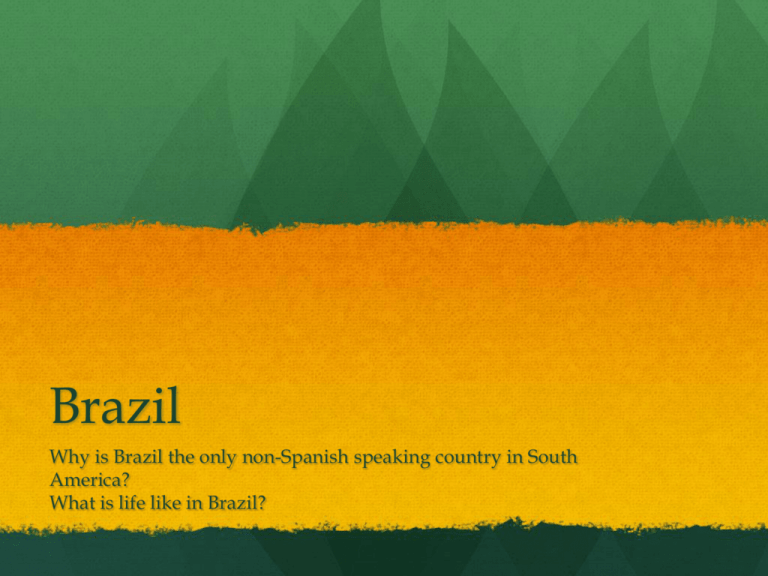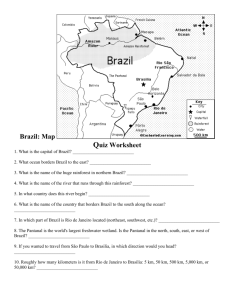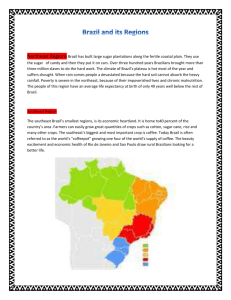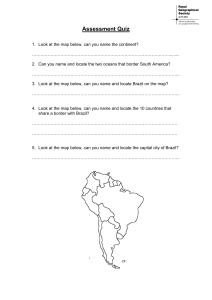Brazil
advertisement

Brazil Why is Brazil the only non-Spanish speaking country in South America? What is life like in Brazil? Daily Warm Up Week of Jan 11th Describe the environmental issue that is currently occurring in Brazil. Pg 35 Brazil Notes History Geography played an important role in the colonization of South America by Spain and Portugal . The two European powers reached an agreement to divide South America. With the Treaty of Tordesillas Portugal gained control over the land that became present-day Brazil. Why Brazilians speak Portuguese In 1807, Napoleon’s armies invaded Portugal. The Portuguese royal family boarded ships and sailed to Brazil to escape capture. Portugal’s largest colony, taking their court and royal treasury with them. Why Brazilians speak Portuguese For the next 14 years, Brazil was the heart of the Portuguese empire. The Portuguese royal family remained in Brazil from 1500 to 1822 Independence for Brazil Brazil remained a Portuguese colony from 1500. to 1822. In 1822 the son of Portugal’s King Dom Pedro was sent to rule Brazil as an independent country. In 1822 he declared Brazil an independent country An Industrial Power Brazil is one of the most industrialized of South American countries, with one of the largest steel plants in the region. Natural resources have helped make Brazil an industrial power. It has deposits of iron and bauxite, as well as other minerals used in manufacturing. Migration to the Cities Increasing urbanization is one result of attempts by many Brazilians to improve their lives by seeking jobs in the cities. In 1960 about 22% of the population lived in the cities. By 2008, more than 86% of the people live in cities. Also 80% of the population lives within 200 miles of the sea. City Life in Rio De Janeiro Rio de Janeiro is the cultural center of Brazil The residents of Rio are among the country’s leaders in important cultural activities and institutions. City Life in Rio De Janeiro There is a darker side of life in Rio and that is caused by the widening gap between rich and poor. Desperately poor slums, called favelas, dot the hillsides. Crime waves and drug abuse are two results of the poverty. Recently however, government officials have launched programs to bring in electrical power, paved streets, and sewers. WARM UP STUDY FOR YOUR QUIZ MAP QUIZ ALL ANSWERS GO ON SEPARATE SHEET OF PAPER IF YOU HAVE THE QUIZ WITH STARS NEXT TO THE TITLE ALL ANSWERS GO ON QUIZ WRITE YOUR NAME ON YOUR QUIZ!!!!






